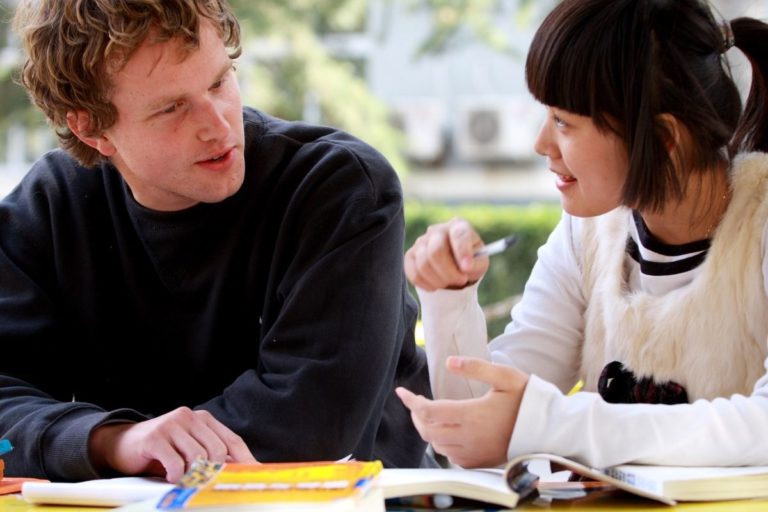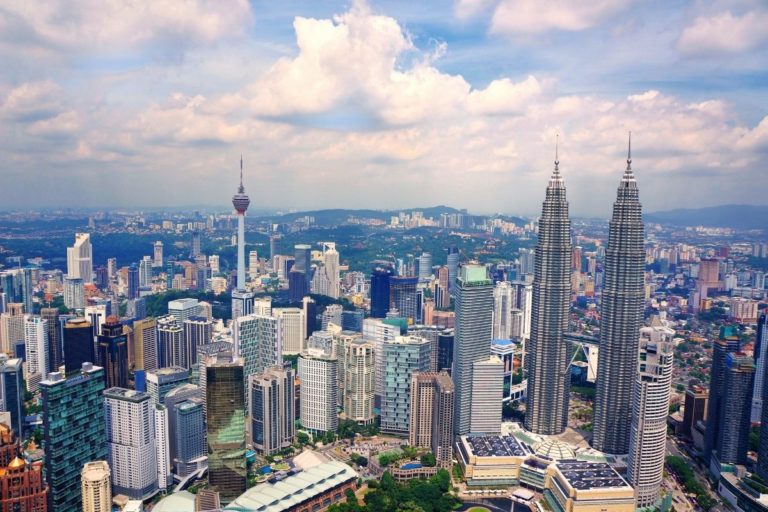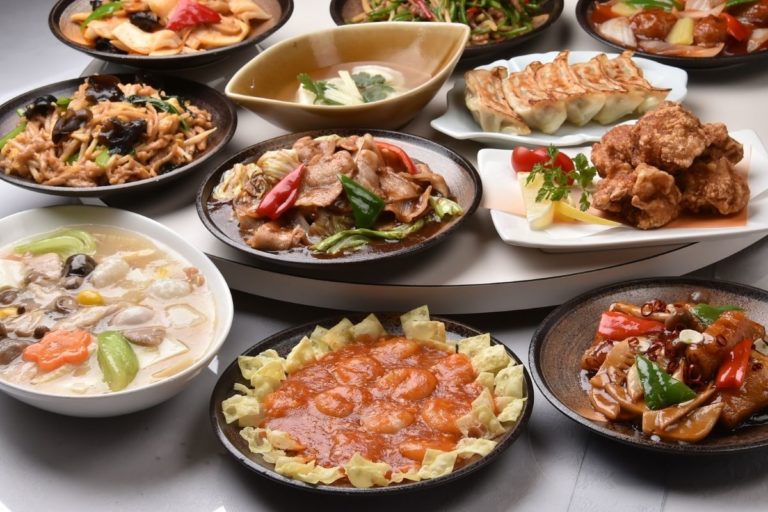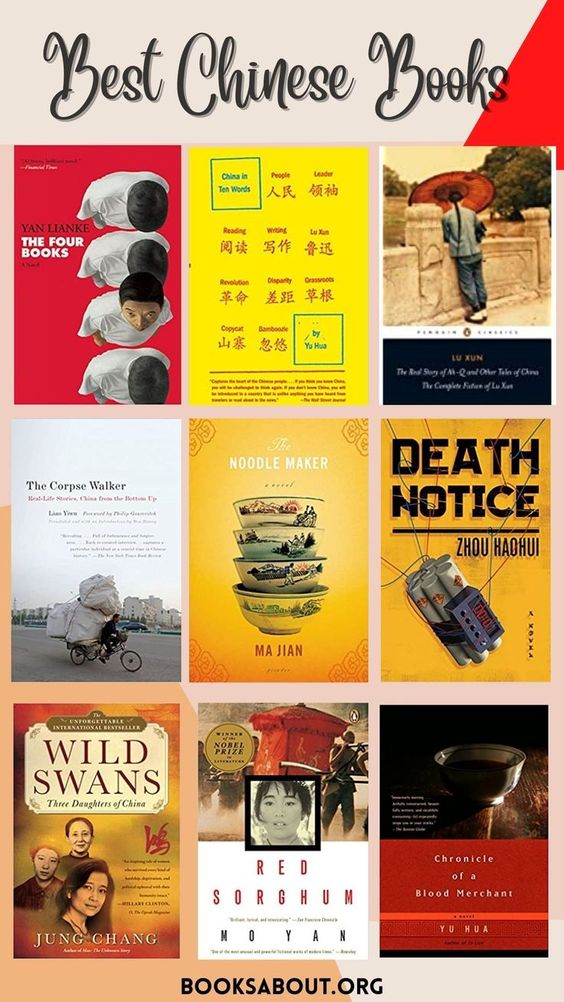
Historical fiction, love stories, culture, romance. Popular all-time bestsellers and censored books. The best Chinese novel books I read when living in China
Autobiographies, Thrillers, Satire, Love Stories. The Top 10 Chinese Books and Novels
The most populous country in the world, one of the country with the richest history, culture and tradition and yet so unknown outside its borders.
I lived in China and traveled the country intensively for a couple of years, these are the books I read during that period.
Here my list of the best Chinese novels and books, the must-read to understand the contemporary China and its people
You might also like:
The Best Chinese Cook Books to Learn Chinese Cuisine
Disclosure: Some of our articles contain affiliate links (as an Amazon affiliate I earn from qualifying purchases).
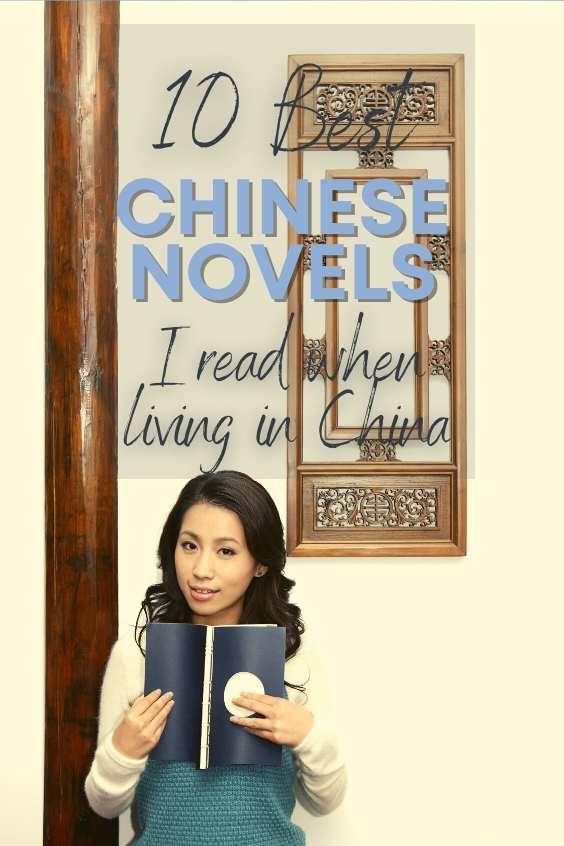
Chronicle of a Blood Merchant
by Yu Hua, 1995
Prices pulled from the Amazon Product Advertising API on:
Product prices and availability are accurate as of the date/time indicated and are subject to change. Any price and availability information displayed on [relevant Amazon Site(s), as applicable] at the time of purchase will apply to the purchase of this product.
Yu Hua is one of the most internationally acclaimed contemporary Chinese authors. Born in 1960, he grew up during the Cultural Revolution, and most of his books are set in that period.
This book presents the life during Mao’s regime through the life of Xu Sanguan, a factory worker at a silk mill who sell his blood at a local hospital.
Far from being dark as the title might suggest, Chronicle of a Blood Merchant, is a pretty humorous novel, and yet very emotional and revealing.
Funny and sad at the same time, the storytelling is very simple, reflecting the social condition of the characters.
If you are approaching the work of Yu Hua, or want to dive into Chinese culture, this book is the perfect starting point.
Red Sorghum: A Novel of China
by Mo Yan, 1986
Prices pulled from the Amazon Product Advertising API on:
Product prices and availability are accurate as of the date/time indicated and are subject to change. Any price and availability information displayed on [relevant Amazon Site(s), as applicable] at the time of purchase will apply to the purchase of this product.
Red Sorghum is best-known novels of Mo Yan, winner of the 2012 Nobel Prize in Literature.
The story, narrated in first person, not chronologically, goes through three generations of a simple family from Shandong (Qingdao region) from the early 30’s to the 70’s.
They made a living distilling sorghum wine, then the sino-japanese wars hit and the storytelling become more graphic and brutal.
Some reader might find the realism a bit disturbing, but there is also humor, love and passion.
A very turbulent time narrated from the point of view of a rural Chinese family.
Descriptions are full of power and poetry, very rich vocabulary, sometime with the insistent repetition typical of contemporary Chinese literature.
Wild Swans: Three Daughters of China
Jung Chang, 1991
Prices pulled from the Amazon Product Advertising API on:
Product prices and availability are accurate as of the date/time indicated and are subject to change. Any price and availability information displayed on [relevant Amazon Site(s), as applicable] at the time of purchase will apply to the purchase of this product.
Another international bestseller from Chinese author Jung Chang. Well, not really international considering that the book is banned in China.
Wild Swans is her family autobiography, centring on three generations of women.
Starting from the story of her grandmother, who had bound feet and was given as a concubine to a warlord general, then Chang’s Mother’s story, who worked for Mao’s Red Army together with her husband, their spectacular falls from grace and finally Chang’s story during the infamous cultural revolution.
A brutal account of 20th century China and everyday life, a remarkable insight of a national trauma, a must read.
Jung Chang also published, with her husband, the historian Jon Halliday a biography of Mao, Mao: The Unknown Story.
China in Ten Words
Yu Hua, 2010
Prices pulled from the Amazon Product Advertising API on:
Product prices and availability are accurate as of the date/time indicated and are subject to change. Any price and availability information displayed on [relevant Amazon Site(s), as applicable] at the time of purchase will apply to the purchase of this product.
Another book from Yu Hua, another Chinese book banned in China.
A perfect companion for a Chinese trip. I personally read the book while living in Hangzhou, and I can confirm that those 10 words are the soul of Chinese culture and economy of today.
The ten words are: people (人民), leader (领袖), reading (阅读), writing (写作), Lu Xun (鲁迅), revolution (革命), disparity (差距), grassroots (草根), copycat (山寨), bamboozle (忽悠).
The author as a child personally experienced the Cultural Revolution, but what is interesting is the connection of the word’s meaning from the past to the present, the evolution but yet the same roots.
The Four Books
by Yan Lianke, 2011
Prices pulled from the Amazon Product Advertising API on:
Product prices and availability are accurate as of the date/time indicated and are subject to change. Any price and availability information displayed on [relevant Amazon Site(s), as applicable] at the time of purchase will apply to the purchase of this product.
As most of the contemporary Chinese books presented here, there is a lot of laughs and a lot of cries. And, of course, banned in China.
The book present and ridiculize the Great Leap Forward, the ridiculous political decisions that were made by Mao and the terrible famine that ensues.
40 million people were starved to death, so surreal and dystopic if it was not the reality. More than a book about about Chinese recent history, it is a book about humanity.
Set in a so called re-education camp. the strength of the book is the narration, the brilliant level of satire, the personalities and at the same time the stereotype of the characters.
The Four Book (the title refers to Four Books and Five Classics of the classical Confucian canon) was rejected by 20 publishers, scared of being rejected by the new China.
The Corpse Walker: Real Life Stories: China From the Bottom Up
by Liao Yiwu, 2003
Prices pulled from the Amazon Product Advertising API on:
Product prices and availability are accurate as of the date/time indicated and are subject to change. Any price and availability information displayed on [relevant Amazon Site(s), as applicable] at the time of purchase will apply to the purchase of this product.
Another Chinese book banned in China, written by Liao Yiwu, imprisoned for publishing a poem about the Tiananmen Square massacre.
This book is a collection of interviews of people not usually part of historical accounts, a safecracker, a village teacher, a blind street musician, a retired government official, a feng shui master and many other man and women who, willingly or not, created the new China.
Eye-opening, well written, easily readable. This book gives you a new new prospective of communist China and helps destroying stereotypes, humanizing the traumatic experience of millions people, often very far away from the global political arena.
The Real Story of Ah-Q and Other Tales of China: The Complete Fiction of Lu Xun
by Lu Xun, 2010
Prices pulled from the Amazon Product Advertising API on:
Product prices and availability are accurate as of the date/time indicated and are subject to change. Any price and availability information displayed on [relevant Amazon Site(s), as applicable] at the time of purchase will apply to the purchase of this product.
First published in the Beijing Morning News as an episodic novella in 1921, it is one of most important Chinese book of 20th Century.
A real classic, a portrait of China before the revolution, with the right balance of satire and sorrow, it is the first book written in vernacular Chinese.
Ah Q, a lower class man from rural China, is the stereotype of the Chinese culture of his time.
Nowadays, the word “Ah Q mentality”is used to refer to someone who feels superior but he is very ignorant.
The Noodle Maker: A Novel
by Ma Jian, 1991
Prices pulled from the Amazon Product Advertising API on:
Product prices and availability are accurate as of the date/time indicated and are subject to change. Any price and availability information displayed on [relevant Amazon Site(s), as applicable] at the time of purchase will apply to the purchase of this product.
Another acclaimed Chinese book banned in China, written by Ma Jian, one of the most famous Chinese dissident.
In the post-Tiananmen China, after Deng Xiaoping’s pronunciation of the Open Door Policy, a writer and a professional blood donor meet for dinner.
The writer was ordered to write about a Chinese Communist hero. During these drunken evenings, the two friends talk about the stories the writers would have like to write if he was free, stories based on the people they know.
Extraordinary characters, like a failed actress who stage her own public suicide in the jaws of a tiger or a painter who lives with a philosophical talking dog.
One of the funniest book in this list, a satirical novel, absurd but so real.
Death Notice: A Novel
by Zhou Haohui, 2014
Prices pulled from the Amazon Product Advertising API on:
Product prices and availability are accurate as of the date/time indicated and are subject to change. Any price and availability information displayed on [relevant Amazon Site(s), as applicable] at the time of purchase will apply to the purchase of this product.
First book of a trilogy written by Zhou Haohui, Death Notice is a detective thriller.
The Captain of the provincial Longzhou Police Department, Pei Tao, has to reopen a 18 years old case after a Sergeant, who claimed to have information on the killer, is found murdered in his apartment.
The old cold case was about a killer nicknamed Eumenides, the goddess of retribution in Greek mythology.
A bestseller in China, where it was adapted into a popular web series.
Serve the People!: A Novel
by Yan Lianke, 2010
Prices pulled from the Amazon Product Advertising API on:
Product prices and availability are accurate as of the date/time indicated and are subject to change. Any price and availability information displayed on [relevant Amazon Site(s), as applicable] at the time of purchase will apply to the purchase of this product.
To Serve the People! was the title of a Mao Zedong speech, promptly transformed in one of the most popular Communist Party Slogan.
To Serve the People! is a love story between the young wife of an old general,and a soldier during the Cultural Revolution.
After 3 days of sex, the soldier is completely exhausted. The two lovers found out by chance that when he smashes a Mao’s bust, he gets aroused again.
What do you it is the decision they came up with in a period when destroying a Mao’s image meant death by firing squat?
Of course they smashed all the Mao imagery in their residence to prove their love.
A very funny sexy satire that did not please the Communist Party. Banned in China.
More about Chinese Culture?
- Awakening through Enlightenment: 11 Books on Zen Buddhism
- Best Books to Learn Chinese
- Books About Kung Fu – How to Learn the Most Ancient Martial Art












